Moroccan gastronomy is one of the richest and most renowned in the world, not only for its spices and savory dishes, but also for its delicious desserts. Traditional Moroccan sweets combine Arab, Berber, Andalusian and French influences, resulting in an exquisite pastry, full of honey, almonds, nuts, orange blossom water and cinnamon.
If you are planning a visit to Morocco, tasting its typical sweets is an experience not to be missed. Here are the most emblematic desserts you should try and where to find them.
Gazelle horns (Kaab el Ghazal)
The Gazelle Horns are, without a doubt, one of the most representative sweets of the country. Its half-moon shape, reminiscent of the animal’s horns, is filled with a soft almond paste, flavored with orange blossom water and cinnamon, and wrapped in a thin dough that is baked to obtain a crunchy texture.
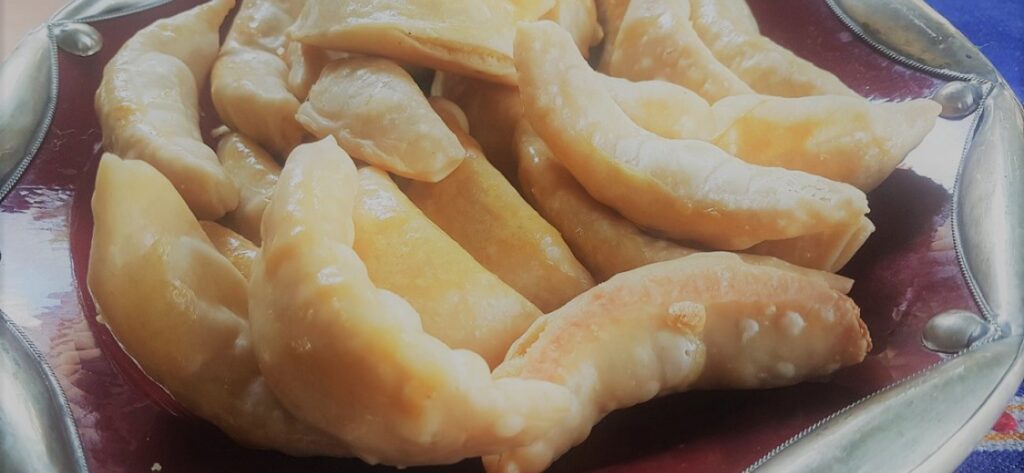
They are usually served with mint tea and are present at weddings, religious celebrations and family gatherings.
Chebakia
Chebakia is a sweet jewel that stands out especially during the month of Ramadan. It is made with a spiced dough (with anise, cinnamon, saffron and sesame) that is fried in hot oil and then generously dipped in honey and sprinkled with sesame seeds.
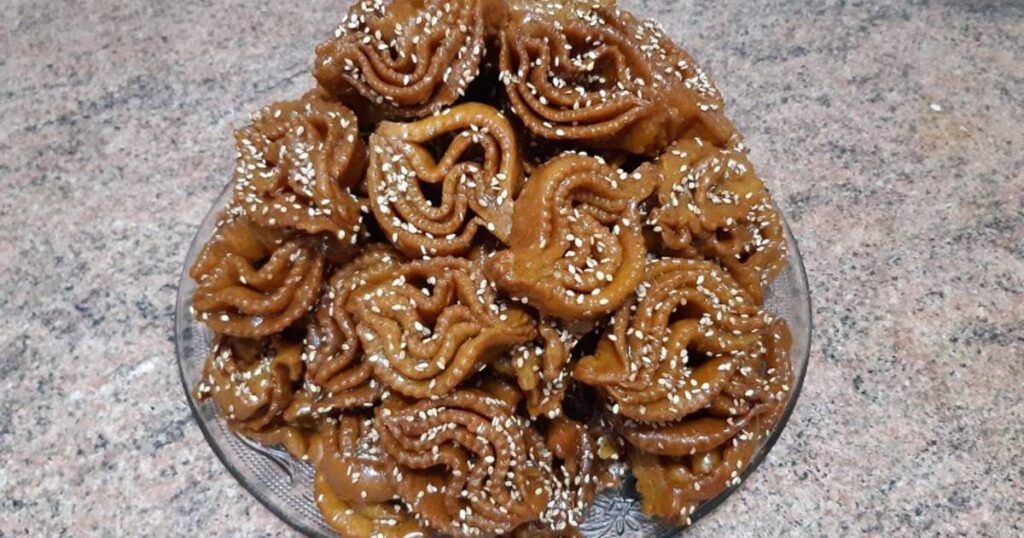
This sweet is not only tasty, but also has a strong symbolic value, as it represents unity and hospitality at Moroccan tables during religious celebrations.
Makrout
Of Berber origin, Makrout is a pastry filled with date paste, flavored with cinnamon and wrapped in semolina. After frying or baking, it is dipped in hot honey. It is a typical sweet not only in Morocco, but also in Algeria and Tunisia, although with slight regional variations.
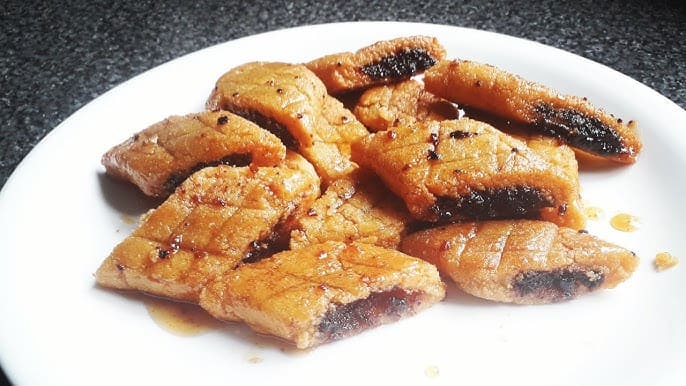
Ideal for lovers of dates and the authentic taste of North Africa.
Sweet cake
Although Pastela ( or bastilla) is traditionally a savory dish filled with chicken meat and almonds, there is also a sweet version that surprises everyone who tries it. In this variant, the filo dough is filled with almonds, powdered sugar and cinnamon, and served sprinkled with sugar.
Its crunchy texture and sweet and spicy flavor make it a unique delicacy that you will find in many pastry shops in the country, especially in imperial cities such as Fez or Meknes.
Baklava
Although Baklava is more common in countries such as Turkey or Greece, in Morocco it has also been adopted with a touch of its own. It is made with layers of filo dough, filled with dried fruits such as pistachios, walnuts or almonds, and bathed in a syrup based on honey and rose water.
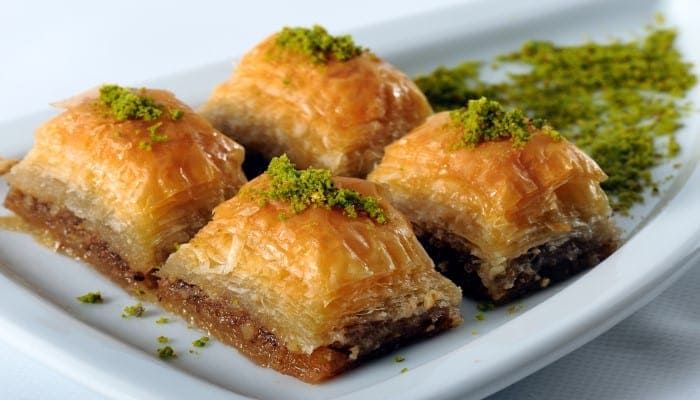
Its intense flavor and flaky texture make this sweet one of the most coveted in Moroccan pastry shops of oriental influence.
Briwat
Briwat are small triangular sweets made with brick dough and filled with ground almonds, sugar, cinnamon and orange blossom water. Once fried, they are dipped in honey, which gives them a powerful flavor and a juicy texture.
You will find them on assorted trays during family celebrations or any traditional Moroccan event.
Sellou
This sweet does not need to be baked or fried. Sellou is prepared with toasted flour, ground almonds, sesame, cinnamon, sugar and butter. It is very energetic and is usually consumed during Ramadan to provide strength after the daily fast.
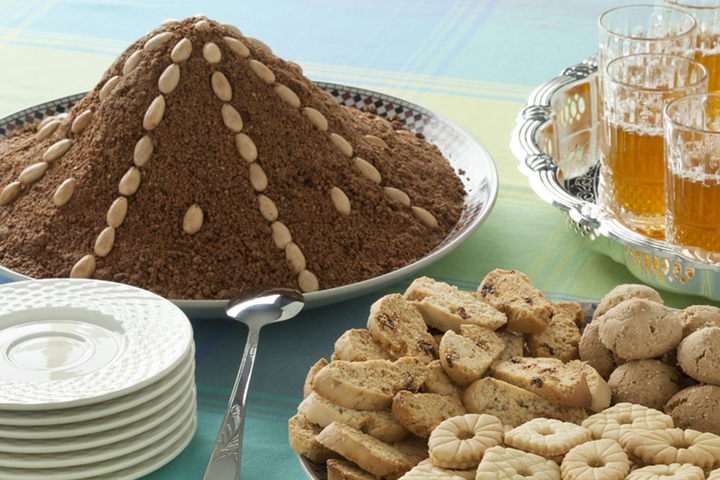
It has a texture similar to a crumbled cookie, and its spicy flavor makes it a different but delicious option.
Discover the flavors in an authentic journey
If you are interested in a complete gastronomic experience, touring the markets, medinas and imperial cities is one of the best ways to discover these sweets and other cultural treasures.
With our Morocco Imperial Cities Tour, you can visit places like Fez, Rabat, Meknes and Marrakech, where you will taste the sweets in their place of origin and in their maximum splendor.